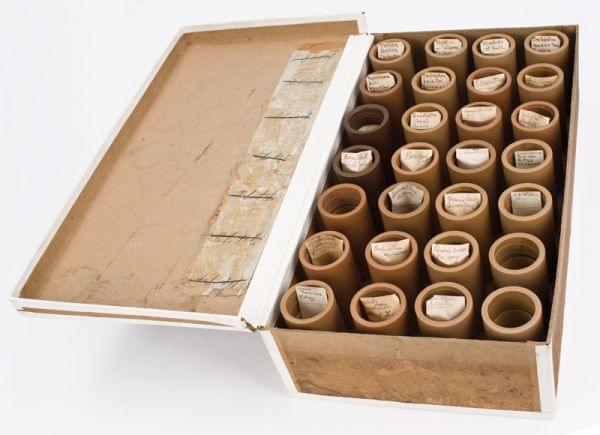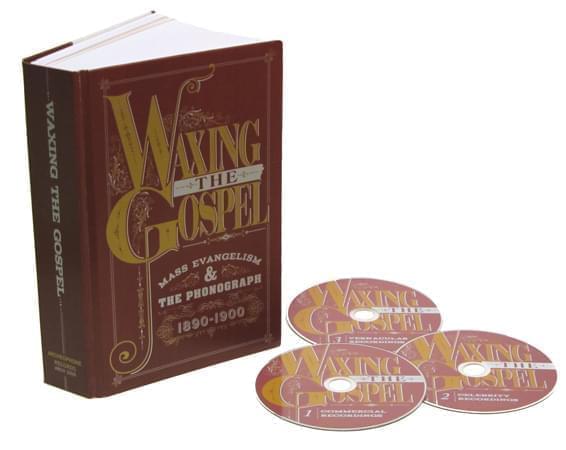‘Waxing’ Nets Two More Nominations For Champaign-Based Archeophone

A box of wax cylinder recordings found by Archephone contributor Michael Devecka, produced at the 1897 Methodist camp meeting in Ocean Grove, New Jersey. Archeophone Records
A Champaign-based record label that preserves recordings from the acoustic era – without the use of microphones - has picked up two more Grammy nominations. The latest release also marks Archeophone Records’ first foray into sacred music. “Waxing the Gospel: Mass Evangelism and the Phonograph" is a collection of hymn and spoken word recordings from the 1890’s, with a 400 page book.
The tracks range from Baldwin’s Cadet Band of Boston to evangelists Dwight L. Moody and Ira D. Sankey. They were among the first to use the newest in technology - Thomas Edison’s wax cylinder phonograph - as a means for spreading their faith beyond revival meetings.
Archeophone’s project began a decade ago, and grew larger in scope as the label researched, and reached out to colleagues who regularly collect this material.
“We collected what we could – we got a lot of instrumentals – and vocals, quartets, and solos," said label co-owner Richard Martin. "And now we had a 2 CD set – which was very exciting. But then... it grew again.”
The release is split into commercial recordings from 1890’s "recording artists" - celebrity recordings from evangelists of the period, and vernacular recordings – or those made in homes, or out in the field, like "Sunlight" - performed by Winfield Weeden. It's one several discovered in a cache of recordings that came from an 1897 Methodist camp meeting in Ocean Grove, New Jersey.
That cache, found by Archeophone collaborator Michael Devecka, were recorded in Ocean Grove in 1897 by Harry Heath, an optician and active Presbyterian who regularly attended the Ocean Grove camp meetings.
Martin calls it a stroke of of luck that tiny slips of paper identifying the songs were in that set. He says newspaper research later confirmed that Heath planned to give a 'concert', playing back the recordings at a YMCA rescue mission.
“That’s the case with most home recordings – you don’t really know what they are, because very infrequently do they come with a documentation on who made them when, why, and how they’ve been preserved for 100 years," Martin said.

Archeophone's"Waxing The Gospel" book and CD set.
"In diving in to add the context, we also realized that no one had ever attempted to tell this story before," said Archeophone co-owner Meagan Hennessey, who said most re-issuing of sacred music from the acoustic era came from the 1920's. "We realized that 'Waxing' could tell a historically significant, yet overlooked, story."
On Tuesday, Archeophone netted nominations for Best Historical Album, and Best Album notes.
The label has 14 nominations in total (between their own work and those of contributors), with one Grammy win, which came in 2006, a Best Historical Album nod for "Lost Sounds: Blacks and the Birth of the Recording Industry."
The Grammys are February 12, 2017, in Los Angeles.
Links
- Another Grammy Nomination For Champaign’s Archeophone Records
- Two More Grammy Nominations For Champaign Record Label
- Champaign-Based Record Label Earns Grammy Nomination for 5th Straight Year
- sidetrackapr07
- Archeophone Records
- Archeophone's "There Breathes A Hope" on NPR
- Archeophone profile on NPR in 2007

